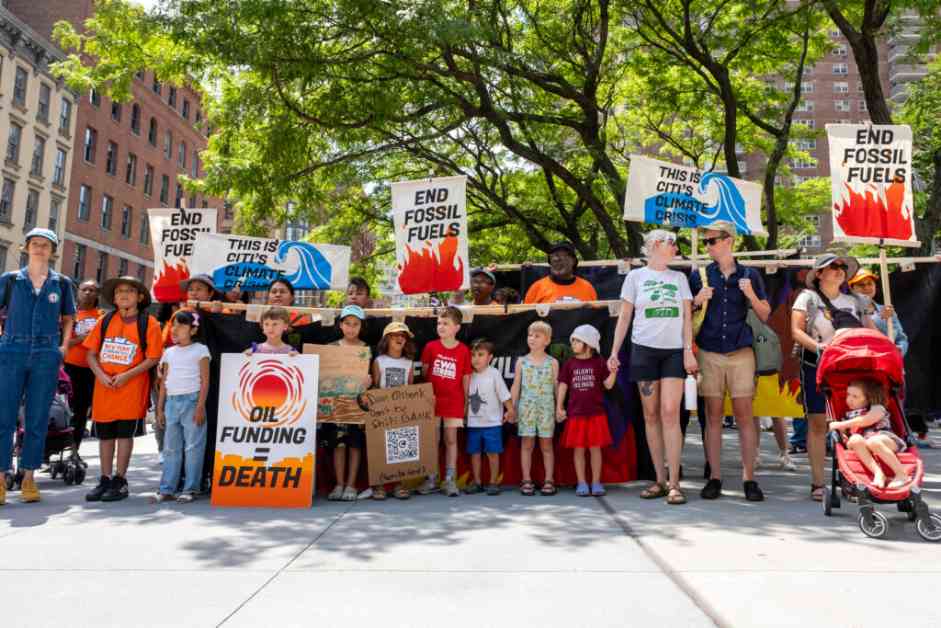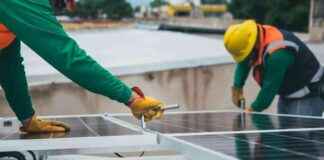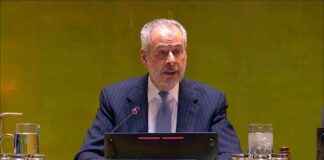Trump’s Second Term: Climate Movement Puts Class Issues in Spotlight
As the impending second term of President Donald Trump looms, the climate movement is shifting its focus to highlight the intersection of economic disparities and environmental justice. Activists are mobilizing to address the urgent climate crisis while advocating for social and economic equity, especially in the wake of the Summer of Heat campaign in New York City.
Activist Spotlight: Rachel Rivera’s Personal Story
One such activist, Rachel Rivera, a New York organizer and Hurricane Sandy survivor, shared a poignant story that resonated with many. She recounted the harrowing experience of rushing her 10-year-old daughter to the hospital due to a severe asthma attack exacerbated by the city’s scorching heat waves. Standing outside Citibank’s headquarters, Rivera passionately called out the CEO, Jane Fraser, urging her to empathize with families like hers who bear the brunt of climate-related health crises.
Rivera’s emotional plea shed light on the human toll of unchecked fossil fuel expansion and the urgent need for action. Her story, along with those of other climate refugees and disaster survivors, underscored the pressing need to address the class dimensions of the climate crisis and challenge the entrenched interests of Wall Street and fossil fuel companies.
Looking Ahead: Strategic Planning Amidst Uncertainty
As activists gear up for the challenges ahead under the new administration, they are strategizing ways to broaden the climate movement’s base and deepen connections with communities grappling with economic insecurities. Marlena Fontes, a leader of the Wall Street campaign, emphasized the importance of framing climate action as a matter of economic justice, resonating with a broader audience beyond traditional environmental circles.
Fontes and other organizers are exploring avenues to strengthen the movement’s impact through sustained, targeted campaigns that hold elites accountable for their role in perpetuating the climate crisis. By mobilizing diverse coalitions and fostering community alliances, activists aim to amplify their voices and push for transformative change on both local and national levels.
Building Solidarity: A Call for Inclusivity and Engagement
In the aftermath of Trump’s election, climate activists like Kaniela Ing stress the importance of reaching out to marginalized communities and engaging with a wide spectrum of stakeholders, including those who may not prioritize climate issues. By fostering dialogue, building trust, and addressing shared concerns such as housing affordability and economic opportunity, activists aim to bridge divides and cultivate a more inclusive movement for climate justice.
Ing’s experiences in Lahaina, a community ravaged by wildfires, highlight the potential for collaborative efforts that transcend political differences in pursuit of sustainable solutions. By prioritizing community-led initiatives and renewable energy projects, local communities can chart a path towards resilience and environmental stewardship, setting a positive example for broader climate action.
As the climate movement navigates uncertain terrain in the coming years, the core message remains clear: climate justice is intrinsically linked to economic equity, social solidarity, and collective action. By uniting diverse voices, mobilizing grassroots support, and advocating for transformative policies, activists are laying the groundwork for a more just and sustainable future for all.














